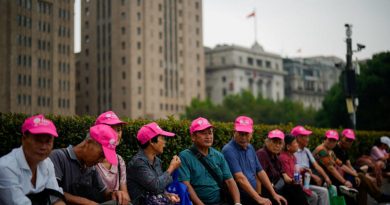Bank of Thailand to supervise loans for hire purchase, leasing
Move aims to promote fairness for consumers, reduce household debt

The Bank of Thailand (BoT) may take over the regulation of fees and interest rates for auto hire-purchase and leasing loans, replacing the Office of the Consumer Protection Board (OCPB) under a new law.
Following an amended royal decree that authorises the BoT to oversee the auto lending sector, the regulator will coordinate with the OCPB on the regulation of fees and interest rates in this segment, said Pirajit Padmasuta, senior director of financial consumer protection and financial service provider supervision at the central bank.
The amended royal decree, published in the Royal Gazette on June 5, stipulates hire-purchase and leasing businesses for cars and motorcycles fall under the central bank’s supervision beginning Dec 2, 2025.
The OCPB typically revises the fee and interest rates for auto loans every three years, with the next review scheduled for the end of this year. The effective annual interest rates under OCPB oversight are 10% for new car loans, 15% for used car loans and 23% for motorcycle loans.
Under the amended decree, the central bank can regulate car and motorcycle loan providers, with a focus on responsible lending practices and market conduct.
The regulator aims to standardise financial service offerings to ensure fair and reasonable pricing, enhancing consumer protection, said Ms Pirajit.
The supervision is intended to support financial stability and manage the country’s household debt.
Outstanding hire-purchase and leasing loans for cars and motorcycles total around 1.6 trillion baht, accounting for roughly 10% of Thailand’s household debt.
As part of the new regulatory framework, loan providers are required to register and report to the central bank beginning on Dec 2, 2025. The regulator said it will begin accepting registrations starting in September.
Ms Pirajit said there are roughly 3,000 operators nationwide.
The central bank will implement a proportional supervision approach, she said, monitoring large-scale operators with loan portfolios of at least 1 billion baht, which number 60.
Smaller operators are subject to random inspections, in line with international standards, said Ms Pirajit.
“With the adoption of responsible lending practices under central bank supervision, some borrowers may face reduced access to credit, which could affect car sales,” she said.
“However, credit accessibility will better reflect borrowers’ repayment capacity, ultimately contributing to long-term financial stability.”
The regulator recently received consumer complaints regarding unfair interest rates and inadequate information provided during the hire-purchase loan application process.
Sarun Thongtammachart, chairman of the Thai Hire-Purchase Association (THPA), recently said auto leasing business operators have shown varying levels of readiness to comply with central bank regulations following a recent amendment to a royal decree on auto hire-purchase businesses.
According to Mr Sarun, THPA has 74 members, comprising 35 ordinary members and 39 associate members.
Business operators that are subsidiaries of banks fall under the banking sector, or operate as captive leasing companies and tend to be prepared to comply with the central bank’s supervision, particularly in areas related to responsible lending and market conduct, as required by the central bank.
Source – Bangkok News




